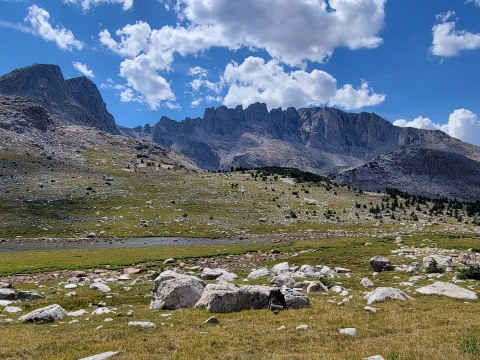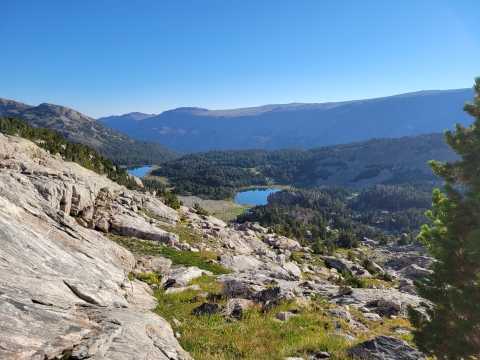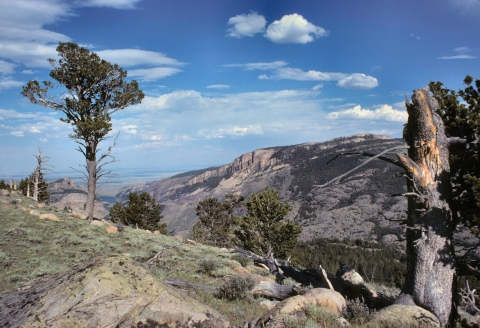About Us
The Lander Fish and Wildlife Conservation Office is part of a network of field stations located throughout the nation that works to conserve fish and aquatic resources. Biologists from the Arctic Circle to the Florida Keys work to restore native species, including protect imperiled species and their habitats; monitor and control invasive species invasive species
An invasive species is any plant or animal that has spread or been introduced into a new area where they are, or could, cause harm to the environment, economy, or human, animal, or plant health. Their unwelcome presence can destroy ecosystems and cost millions of dollars.
Learn more about invasive species ; evaluate native fish stocks and their habitats; and prescribe remedial measures to fix problems.
Our field stations provide technical assistance to tribes; collaborate on fishery restoration with the National Fish Hatchery System; supervise subsistence use by rural Alaskans on federal lands; conduct scientific studies into fishery problems; restore habitat through the National Fish Passage Program and the National Fish Habitat Action Plan; and they collaborate with partners to conserve migratory fishes that cross multiple jurisdictions.
The 2.2-million-acre Wind River Reservation near Lander, Wyoming, contains some of the most pristine mountainous areas in the lower 48 states as well as over 250 lakes and reservoirs and over 1,100 miles of rivers and streams. The Reservation provides an abundance of habitat for native cutthroat trout, burbot, and sauger as well as a variety of non-native fish including lake, brown, rainbow and brook trout. Native wildlife such as elk, mule deer, whitetail deer, pronghorn antelope, bighorn sheep and moose are abundant and provide a sustainable harvest for over 1,000 tribal hunters. Additional species of interest include the sage-grouse, mountain lion, gray wolf and black and grizzly bear.
Our Mission
Since 1871, the U.S. Fish and Wildlife Service has been applying science-based approaches to conservation challenges. We work with our partners and engage the public to conserve, restore, and enhance fish and other aquatic resources for the continuing benefit of the American people. Conservation is at the heart of what we do, and we recognize that we do this work for the American people–both the present generation who benefit today and future generations who will inherit our legacy of conserving America’s aquatic resources.
Our History
The Fish & Wildlife Conservation Office (FWCO) located in Lander, Wyoming, has assisted the Eastern Shoshone and Northern Arapaho Tribes of the Wind River Reservation with fisheries conservation since 1941. In 1972, at the request of the Tribes and supported through congressional action, our office was enlarged to include wildlife conservation as well.



